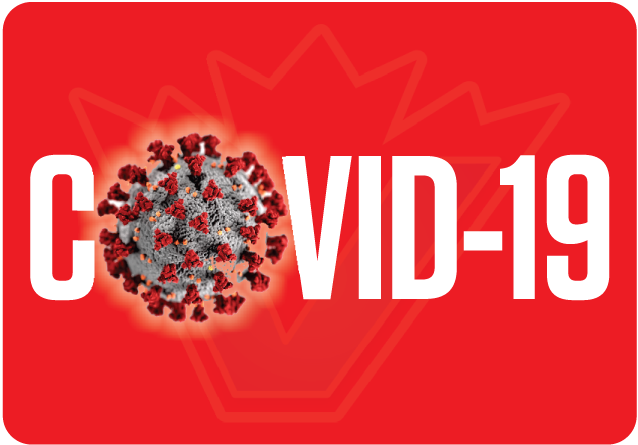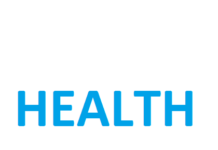“The data has also shown us that community transmission affects people of all ages. But, unfortunately, it is our seniors and elders who continue to be the ones that are most likely to become seriously ill or worse”
PROVINCIAL Health Officer Dr. Bonnie Henry and Health Minister Adrian Dix on Wednesday announced 518 new cases of COVID-19, for a total of 48,027 cases in British Columbia.
There have been 19 new COVID-19-related deaths, and the total number of deaths in the province now stands at 796.
There are 9,137 active cases of COVID-19 in the province. There are 348 individuals currently hospitalized with COVID-19, 80 of whom are in intensive care. The remaining people are recovering at home in self-isolation.
Currently, 9,689 people are under active public health monitoring as a result of identified exposure to known cases (this excludes the Northern Health Authority) and a further 36,952 people who tested positive have recovered.
There have been 97 new cases of COVID-19 in the Vancouver Coastal Health region, 332 new cases in the Fraser Health region, nine in the Island Health region, 49 in the Interior Health region, 31 in the Northern Health region and no new cases of people who reside outside of Canada.
There have been two new health-care facility outbreaks at Evergreen Baptist Care Society and Minoru Residence. The outbreaks at Fellburn Care Centre and Villa Carital are over. There have been no new community outbreaks.
Since the start of immunizations, 5,603 people have received the Pfizer-BioNTech COVID-19 vaccine in B.C.
Henry and Dix said: “Today, the federal government approved the Moderna COVID-19 vaccine. This is another encouraging step forward for all of us.
“Starting next week, the Moderna vaccine will be arriving in B.C., with some of the initial doses delivered to rural and isolated First Nations communities. Unlike the Pfizer-BioNTech vaccine, this vaccine has fewer delivery restrictions, making it easier to provide immunizations in rural and remote communities.”
They added: “As today’s modelling has clearly shown, while the provincial health officer’s (PHO) orders and restrictions are difficult for all of us, they work. The fewer people we see, the safer we are.
“The data has also shown us that community transmission affects people of all ages. But, unfortunately, it is our seniors and elders who continue to be the ones that are most likely to become seriously ill or worse.
“In the last month, our focus has been to encourage everyone in the province to reduce their in-person social interactions as much as possible, and the orders we have in place right now support these efforts.
“Today, a new PHO order for industrial camps in the Northern Health region has been put in place. This order will allow for a phased approach to resuming activities at these projects, while protecting health and safety and protecting the health-care system.
“The nature of an industrial work camp means employees frequently travel to and from these work camps. At the start of the year, these camps typically have an influx of employees returning to the site. Combined, these factors mean a higher potential for spread amongst employees and in their home communities.
“We are already seeing many small, rural and remote communities in the North under strain. This order will help ease the pressure at the start of the year.
“With Christmas two days away, we remind everyone to keep your celebrations small and avoid travel to other communities unless it is absolutely necessary. Show you care by staying away.
“For those who live alone, you do not need to be alone. Rather, choose one small group of one or two other people you are going to spend time with over the holidays – whether at your home or theirs.
“This is a special time for many of us and having those connections with the people we love and care for is important. We encourage you to have a small, safe and happy holiday, so we can all have a safer year ahead.”
Learn More:
For updated provincial health officer’s (PHO) orders and new guidance:
For details on new restrictions, visit:
https://www2.gov.bc.ca/gov/content/safety/emergency-preparedness-response-recovery/covid-19-provincial-support/restrictions
For updated PHO orders, visit:
https://www2.gov.bc.ca/gov/content/health/about-bc-s-health-care-system/office-of-the-provincial-health-officer/current-health-topics/covid-19-novel-coronavirus
Find out where to get tested:
If you are experiencing symptoms, find a collection centre near you to get tested: http://www.bccdc.ca/health-info/diseases-conditions/covid-19/testing
For mental health, anxiety and other supports:
For mental health and anxiety support, visit: www.bouncebackbc.ca
Or: www.anxietycanada.com
Or visit the BCCDC for further supports: http://www.bccdc.ca/health-info/diseases-conditions/covid-19/about-covid-19/mental-well-being-during-covid-19
For more information on overdoses, visit: https://www.stopoverdose.gov.bc.ca
People in BC experiencing violence can access VictimLink, a toll-free, confidential multilingual service available 24/7 by calling or texting 1 800 563-0808 or emailing: VictimLinkBC@bc211.ca (mailto:VictimLinkBC@bc211.ca)
For non-health related information, including financial, child care and education supports, travel, transportation and essential service information, visit: www.gov.bc.ca/covid19
Or call 1 888 COVID19 (1 888 268-4319) between 7:30 a.m. and 8 p.m. (Pacific time), seven days a week.
COVID-19 exposure events, updates and information by health authority:
BCCDC (flights, work sites, etc.): http://www.bccdc.ca/health-info/diseases-conditions/covid-19/public-exposures
Fraser Health: fraserhealth.ca/covid19exposure
Interior Health: https://news.interiorhealth.ca/news/public-exposures/
Island Health: https://www.islandhealth.ca/learn-about-health/covid-19/outbreaks-and-exposures
Northern Health: https://www.northernhealth.ca/health-topics/outbreaks-and-exposures
Vancouver Coastal: http://www.vch.ca/covid-19/public-exposures
For the latest medical updates, including case counts, prevention, risks and testing, visit: http://www.bccdc.ca/
Or follow @CDCofBC on Twitter.












